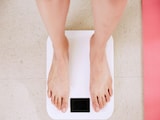If you grew up in an Indian household, you've probably heard at least one "sure-shot trick" to bring your period early. From being handed a glass of hot ajwain water by your mother to being told to load your plate with papaya, these homegrown hacks have quietly been handed down through generations.
These hacks are now deeply ingrained in our minds, much like the numerous myths surrounding menstruation. There are myths that certain foods -- like sour items or "hot" spices -- can induce periods, or that washing your hair close to your period might signal your uterus to release blood, and so on.
And now, thanks to Instagram Reels and YouTube tutorials, they've found a glossy reboot.
Influencers are ditching pills and birth control, turning instead to "all-natural fixes", convinced that sex, spice, and a dozen infused-water recipes can coax the uterus into clocking in on time. The question is: does any of this actually work?
The Viral Promise Of Natural Period Hacks
Across social media, the logic seems simple: heat up the body, boost circulation, and your uterus will somehow get the memo. Influencers sip saunf water at sunrise, swear by ginger shots, or talk about how a night of sex magically "triggered" their period. But as comforting as these shortcuts sound, biology rarely works on convenience. Or does it? We asked the experts.
What Doctors Say
According to Dr Kajal Singh, Associate Professor, Department of Obstetrics and Gynaecology, NIIMS Medical College And Hospital, Greater Noida, the truth is straightforward.
"Many women try home remedies to 'induce' their periods when they're delayed. These methods are popular but not scientifically proven to actually trigger menstruation."
A delayed cycle is often tied to stress, hormonal shifts or lifestyle changes, not to how much spice you had at lunch.
Here's the breakdown of the most common hacks:
1. Spicy food
Doctors agree there's no medical evidence that spice can influence hormones like oestrogen or progesterone. At best, you'll get acidity, not an early period. Dr Shweta Mendiratta, Director and unit Head, Obstetrics and Gynaecology, Yatharth Hospital, Faridabad explains, "spicy food won't bring your period faster. What it can do is irritate your stomach or make you feel bloated, which some people mistake for cramps. But there's no real hormonal link."
2. Saunf (fennel) and methi (fenugreek) water
Dr Ankesh Sahetya, Consultant Gynaecologist, Mumbai, says some herbs (fennel) have been studied for reducing cramps or modulating symptoms; a few small trials/meta-analyses suggest fennel may affect menstrual bleeding/severity.
He further adds that fenugreek has shown effects on menstrual pain and contains phytoestrogen-like compounds, but evidence that either will reliably induce an otherwise-absent period is weak/inconclusive. Importantly, fenugreek can lower blood sugar and may have uterotonic effects, and this poses risk in pregnancy.
Some herbs are known to reduce period cramps. Photo: Unsplash
These herbs may help soothe cramps or support metabolism over time, but they cannot induce bleeding on demand. Their hormone-balancing properties are mild, useful for long-term health, not instant results, according to him.
3. Papaya
Probably one of the most famous ones, experts say papaya and its enzyme papain may cause very mild uterine contractions, yet this effect is inconsistent and too weak to guarantee anything. Overdoing it only leads to stomach trouble.
4. Sex
Dr Singh says sexual intercourse can sometimes trigger a period if your cycle is already due.
"This is because orgasm increases uterine contractions and improves blood circulation to the pelvic region, which might help the uterine lining shed slightly earlier," she says.
She, however, says that this works only if your hormones have already prepared your body for menstruation.
"It cannot cause periods if they are delayed due to pregnancy, thyroid issues, or hormonal imbalance," she adds.
The Social-Media Hype Vs Real Biology
Dr Soumya Raghvan, MD, DGO, Consultant Obstetrician And Gynaecologist, Apollo Cradle And Children's Hospital, Chennai, says, "Social media trends often oversimplify complex biological processes. There is no scientific evidence that eating spicy food, drinking saunf or methi water, or consuming papaya can reliably induce periods."
Periods arrive when the hormonal cycle completes its natural loop. If ovulation hasn't occurred or hormones are disrupted, no Reel-worthy hack will make the uterus shed its lining on command.
Do These Hacks Come With Risks?
From stomach irritation to affecting blood sugar, these natural fixes aren't always as harmless as they seem. Some herbs, especially methi, can have uterine-stimulating effects, which is unsafe if there's even a small chance of pregnancy.
Dr Shilpa Reddy, Consultant Obstetrician And Gynaecologist, Yashoda Hospitals, Hyderabad, explains, "Randomly consuming herbal concoctions or supplements to bring periods early can irritate the stomach or interfere with hormonal health. Periods cannot be triggered overnight."
When Should You Worry About A Delay
Experts say a one-off delay is normal and often linked to stress, travel, workouts or sleep disruption. But persistent irregularity, missed periods for more than three months, acne, hair growth, sudden weight changes, need medical attention. These signs may point to PCOS, thyroid disorders or amenorrhoea.
Why Periods Can't Be 'Forced'
Dr Arati Adhe Rojekar, Senior Consultant Gynaecologist and Reproductive Medicine, PD Hinduja Hospital And Medical Research Centre, Mahim, Maharashtra, breaks it down clearly.
"The menstrual periods are controlled by our hormonal levels, bleeding happens under hormonal influence, and one can prolong or induce menses only with hormonal medications under medical guidance," she says.
Diet may support hormonal health, but it cannot override the cycle's natural timing.
Bottom Line
You cannot really, naturally, induce your periods. Mild home remedies may support your overall reproductive health but cannot fast-forward your menstrual cycle.
If your period is late:
- Rule out pregnancy
- Track your stress levels
- Check if sleep, weight or lifestyle has shifted
And if the delay continues, see a gynaecologist instead of testing every hack online.
Natural hacks promise control, but your menstrual cycle is not a switch waiting for the right spice or herb. It's a complex hormone-led process, one that responds better to long-term balance than quick fixes.
Also Read | Viral Video Claims Sanitary Pads Get Mould. Gynaecologists Do A Fact-Check











